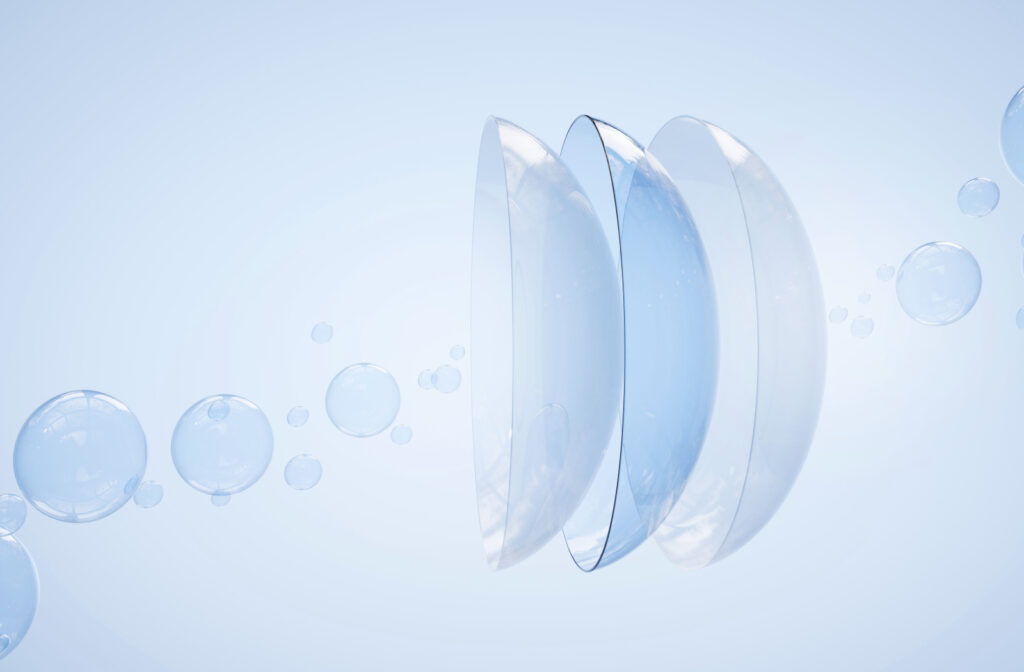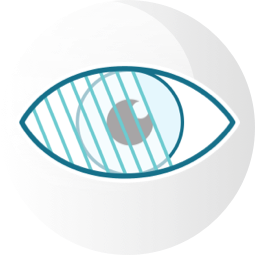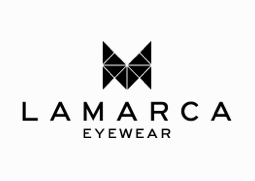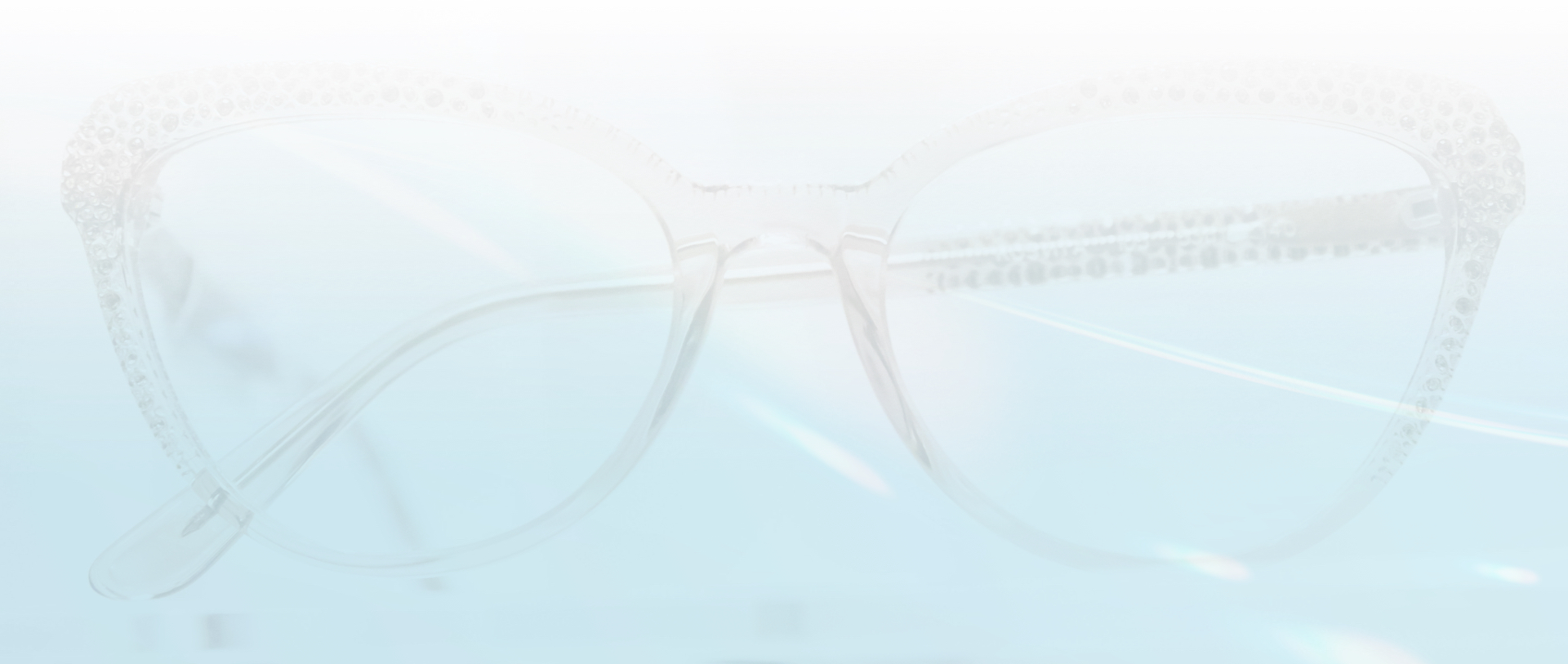If you have ever worn contact lenses, you know how irritating the wrong pair can be. They can dry out your eyes, move around too much, or be uncomfortable. However, with constant breakthroughs in contact lens technology, contact comfort and vision are improved for many people.
Scleral contact lenses are among the specialty lenses gaining popularity for patients with astigmatism, keratoconus, and dry eye disease. When traditional contact lenses aren’t comfortable or don’t improve your vision, alternative options are available for exploration.
What Are Scleral Contact Lenses?
Scleral contact lenses are larger-diameter contact lenses that extend beyond the cornea to rest on the sclera, the white part of the eye. These lenses have been around for many years but have recently gained popularity due to their improved comfort and benefits.
Scleral lenses are made of a gas-permeable material that allows oxygen to pass through the lens to the cornea. This is important because the cornea requires oxygen to stay healthy and function properly. The larger lens and greater eye coverage mean they are more stable, less prone to shifting, and provide sharper vision correction than traditional lenses.
Scleral Contact Lens Uses
Traditional contact lenses don’t work for everyone, and there are certain conditions where scleral lenses can be a better choice. The primary uses for scleral lenses include:
- Keratoconus
- Astigmatism
- Post-cornea transplant
- Dry eyes
Additionally, scleral lenses can be helpful for patients who have scleritis, pinguecula, pterygium, and other ocular surface diseases that cause discomfort and decreased vision.
Keratoconus
Scleral contact lenses have recently emerged as a game-changer for individuals with keratoconus. Keratoconus is a progressive eye disease that causes the cornea to thin and bulge into a cone-like shape, resulting in distorted vision.
Traditional contact lenses don’t provide the necessary support and comfort for those with this condition. By covering the entire cornea, scleral lenses offer a more stable and comfortable fit, ensuring better vision correction for those with keratoconus.
Astigmatism
Scleral contact lenses have revolutionized how individuals with astigmatism can experience clear and comfortable vision. Astigmatism is a common refractive error that causes blurry or distorted vision due to an irregularly shaped cornea or lens.
Traditionally, soft toric contact lenses are used for astigmatism. However, scleral lenses are a great alternative. They create a smooth and consistent surface over the cornea and correct irregularities, providing crisp and clear vision.
Post-Cornea Transplant
Corneal transplant surgery can cause the shape and stability of the cornea to become irregular, leading to refractive errors and blurry vision. Scleral contact lenses provide improved visual acuity and comfort post-transplant surgery.
By vaulting over the cornea and resting on the sclera, scleral lenses create a smooth and uniform surface, correcting irregularities and enhancing vision clarity. Scleral contact lenses are a game-changer for post-corneal transplant patients, offering a lifeline to clear, comfortable vision.
Dry Eyes
For those suffering from dry eye disease, finding relief and improving their quality of life can be a constant struggle. Unlike traditional contact lenses, which can exacerbate dryness and discomfort, scleral lenses create a protective barrier that traps moisture and prevents evaporation, keeping eyes lubricated throughout the day.
Scleral contacts offer a much-needed respite for those dealing with this chronic condition. By simultaneously addressing vision correction and dryness, scleral lenses provide clear vision and enhanced comfort throughout the day.
Benefits of Scleral Lenses
One of the main benefits of scleral lenses is that they are much more comfortable than traditional contact lenses. This is primarily because they sit on the sclera, which has fewer nerve endings as compared to the cornea. As a result, patients wearing scleral lenses tend to experience less irritation, dryness, and redness.
They are also more stable and don’t move around as much as regular contact lenses, helping reduce discomfort.
If you are considering scleral contact lenses, speak to your optometrist. They will determine if scleral lenses are a good option for your specific eye needs and prescription. After measuring your eye accurately to obtain a proper fit for the lens, a fitting appointment is necessary to provide comfortable, clear vision.
Different types of scleral lenses are available, such as mini-scleral and corneo-scleral lenses, and your optometrist can determine which type will work best for you.
Caring for Scleral Lenses
To care for scleral contact lenses, follow these general steps:
- Wash your hands: Before handling your scleral lenses, wash your hands thoroughly with mild soap and dry them with a lint-free towel.
- Clean the lenses: Place a few drops of multipurpose contact lens solution on the palm of your hand and the lens. Rub the lens gently with your finger-pad on each side for at least 10 seconds to remove debris and protein buildup.
- Rinse the lenses: After cleaning, rinse the lenses well with the contact lens solution to remove any residue.
- Fill the bowl of the lens: Use a preservative-free saline solution to fill the bowl of the lens. This helps keep the eye hydrated and provides comfort.
- Insert and remove properly: Follow the specific instructions provided by your eye care professional on inserting and removing your scleral lenses. It’s important to be gentle and avoid damaging the lens or your eye.
- Store properly: Store your scleral lenses in a clean case filled with fresh contact lens solution when not in use. Make sure to clean and replace the case regularly to prevent contamination.
Remember to consult your eye care professional for specific instructions tailored to your needs.
Find the Right Contact Lenses
A contact lens fitting with your optometrist can help you find the right lenses for your specific eye conditions and relieve your reliance on eyeglasses. Schedule a contact lens exam at McCauley Celin Eyecare Associates to begin your contact lens journey.














